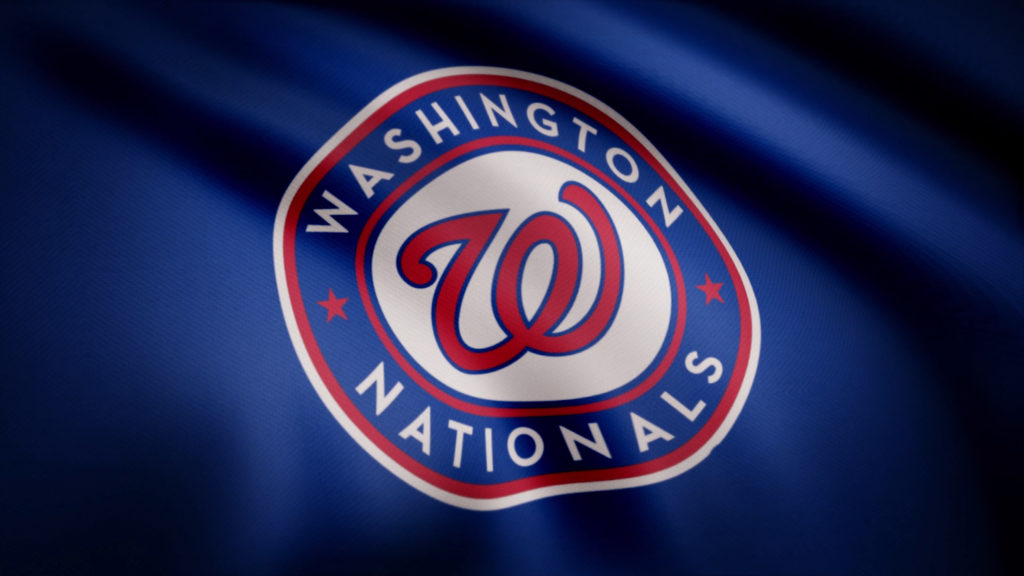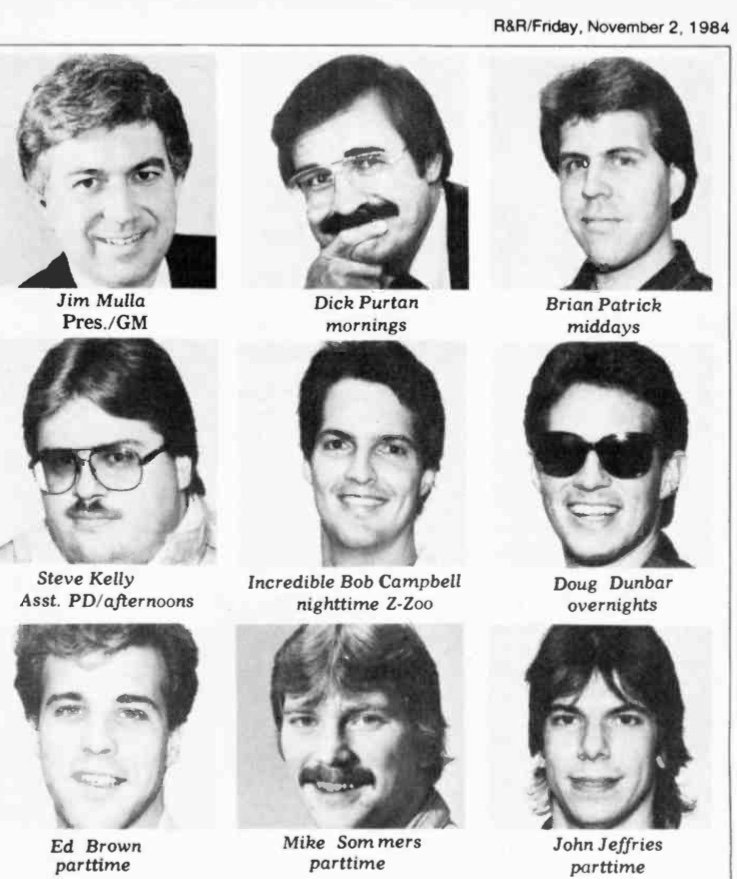
As the saying goes, “Winning is contagious.”
It’s true whether your “game” is sports, selling used cars, or radio. There’s something about being a winning team that isn’t just satisfying – it often makes for a memorable experience. This is why we stage reunions – to relive those moments when everything clicked.
And part of that conversation inevitably gravitates to the concept of “team.” You see it expressed in every winning locker room. While there are sports like golf or tennis that pit individual athletes against one another, team sports always provide interesting test cases of so-called chemistry.
When you look at championship teams and ask those all-important “why” questions, the jocks, the coaches, and the trainers almost always point to locker room chemistry. It’s an intangible that is a blend of personalities, experience levels, and talent (of course), often connected by strong management and ownership.
And when teams go through tough times, losing streaks, injuries, and other calamities, that chemistry is often put to the test. Can teams overcome everything from bad breaks to rotten luck to physical (and mental) breakdowns – yet, still keep it together?
That’s why it’s almost always instructive to model winning teams – or at least analyze what we can learn from them. So, look no further than the Washington Nationals, the team that beat the odds to win the World Series last week.
They were up against a far more experienced team – the rival Astros won the championship two years ago. They miraculously took the first two game in their opposition’s Minute Maid Park to then drop the middle three games on their home field. And that forced them to win the last two games – including a dramatic Game 7 – on the Astros’ home field in Houston.
Forbes contributor Ian Mathews (and an unabashed Nationals fan) wrote a fascinating analysis: “The Washington Nationals Prove That Culture and Experience Still Matter.”
Leaving the annoying “Baby Shark” fight song aside, Mathews points to team culture and veteran leadership as difference makers for the  Nationals – and perhaps, on your team, too.
Nationals – and perhaps, on your team, too.
Interestingly, the Nationals lost their team’s consensus superstar – Bryce Harper – during the off-season to the Phillies. In radio terms, this might be like losing your morning show – and coming back to beat every other station in the ratings.
Mathews offers up an interesting litmus test for players – and the same conditions apply to members of a radio station airstaff. It revolves around asking these questions:
- Are they solid performers?
- Do they fit our culture?
This handy chart is something that can be applied to everyone who occupies studio space in your station, the full-timers, part-timers, and even your morning show’s producer:

(By the way, it’s not a bad test for sales staff either.)
Mathews makes the point it often takes that odd elixir of seasoned, mature veterans and young players to make a great baseball team.
In that context, the young blood brings energy and raw talent to the game. The grizzled vets provide mentorship, along with the calmness of having been in difficult situations before.
Thus, when you fall behind in the World Series – or have a devastating rating book – it often falls on the talent that’s been there and done it all to help settle down a staff.
As it turned out, the Nationals were the oldest team in Major League Baseball (just over 30 years-old). Interestingly, the three youngest teams in the league – the Detroit Tigers (sigh), the Baltimore Orioles, and the San Diego Padres all had abysmal years, losing many more games than they won, while finishing in the basements of their respective divisions.
From a radio staff standpoint, that seems like a rationale to ensure that veterans continue (assuming they end up in the upper right quadrant on the above chart) to be retained by radio stations. Plus, as the Nationals proved, they also bring the potential to help a staff’s young talent develop and mature.
And yet, how often do we see stations – local TV news is the worst at this – flush veteran anchors and reporters in order to bring in younger talent who will work for considerably less compensation?
Mathews would suggest, based on the success of the Nationals and other teams that veterans like Max Scherzer, Anibal Sanchez (yes, both former Tigers), Howie Kendrick and Ryan Zimmerman provided the foundation of the staff. All these guys are 35 or older – long in the tooth by most baseball standards, yet huge contributors on and off the field.
And note the Nationals had one of the youngest full-time players in the World Series, 20 year-old Juan Soto. All he did was hit a home run in his second at bat, while came up with big hits throughout the seven game contest.
While it is easy to point to the chemistry that comes with having players of different ages on the diamond, let’s not forget about background and ethnicity – two other factors that play a role in diversifying a team – especially on the radio.
I thought of this the other day when “Radio Rewinder” published a photo of a high-flying AC station in Detroit back in the 80s – WCZY or Cozy. taken directly from the pages of Radio & Records exactly 35 years ago.

I’m betting the same characteristics about this group jumped out at you, as it did with me. And I’m not talking about the over-reliance on handheld hair dryers. This is the way many radio staffs looked back in those days. And remember: these guys were charged with the task of appealing to women, the main target of the station.
Things in radio – as in baseball – have changed. Teams – and airstaffs – are much more diverse. And that’s no guarantee of great chemistry or winning in the ratings.
But just as team sports had to adjust to the presence of more diverse rosters or lineups, so do radio stations staffs that are more apt to feature the presence of different people.
The test of performance and fit are important, especially melding superstar morning shows with other members of the airstaff. Consistent winning is often a product of great team chemistry.
And consider this: a look at winning radio stations – not the one-book wonders – but that elite group that are at or near the top, book after book, year after year – often exhibit these qualities. Of course, ownership matters, too – another variable that often separates the winners from the also-rans.
It also helps to have a goal. For sports teams, it’s easy – it’s about winning a championship. While some might settle for making the playoffs, most set their annual target on winning the whole enchilada.
 In radio, goals tend to be blurrier. “A great book,” beating the competition, or grabbing a Marconi may be stated aspirations, but they are not the same as a well-defined goal a staff can rally around.
In radio, goals tend to be blurrier. “A great book,” beating the competition, or grabbing a Marconi may be stated aspirations, but they are not the same as a well-defined goal a staff can rally around.
Put your staff to the test – that Performance x Culture analysis. It will give you a different way to evaluate individual members as well as your entire team on a dimension that goes beyond share and “excellent” scores in your perceptual studies.
Broadcasters are learning – especially with the spate of digital competition – that the quality, variety, diversity, and emotional intelligence of their talent – is often a key determinant of long-term success.
A station’s secret sauce.
There is no way to quantify this chemistry, or boil it down to so-called “best practices.”
But looking for people, players, team mates who can excel on both axes of the chart is worth shooting for.
Congrats to the Nats and all their fans.
Now the other 29 teams in the league have a new goal to aspire to in 2020. And maybe heading into the new year, so do you.
Play ball!
Special thanks to Dave Coombs, someone who has excelled in both sports and radio.
- What To Do If Your Radio Station Goes Through A Midlife Crisis - April 25, 2025
- A 2020 Lesson?It Could All Be Gone In A Flash - April 24, 2025
- How AI Can Give Radio Personalities More…PERSONALITY - April 23, 2025




RIP Mike Sommers. Great guy
Thanks, Miles. Where did you work with him?
Such an important blog Fred. Chemistry amongst the air staff at any radio can’t be understated in terms of how it affects the overall performance, both on and off the air. Great read for all programmers, the veterans and the rookies
Appreciate that, Jason. It’s a huge deal and it separates the goods from the greats.